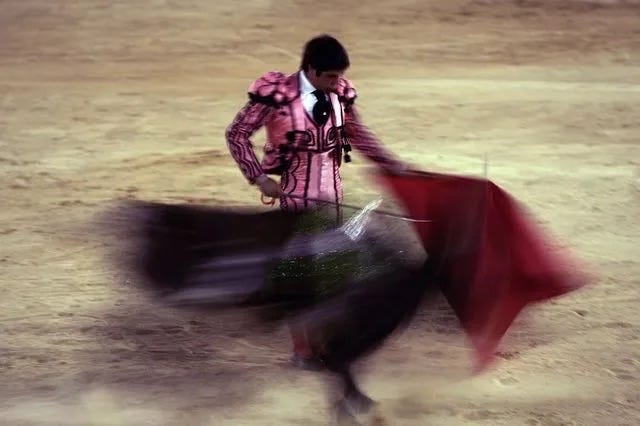The Spanish March, on Mexico City, 1519
Thus they came causing great awe; thus they came causing great terror
My late father, Bill Bright, wrote a “translation poem” from an eyewitness account of the Spanish invasion of Mexico City — as described in the Florentine Codex 12:xi, by Fray Bernadindo de Sagagún, the first European ethnographer of the New World.
Bill studied Nahuatl and Aztec culture in Mexico as a 20-year-old, when he first visited Mexico City in 1947 to attend the university. He continued his studies until the end of his life.
Auh in ommicohuac Chollollan, niman hualpeuhque in ye ic huitze Mexico.
After the massacre in Cholula, then they set forth for Mexico.
Ololiuhtihuitze, tepeuhtihuitze, teuhtli quiquetztihuitze.
They came grouped together, they came in a mass, they came raising dust.
In intepoztopil, in intzinacantopil iuhquin tlapepetlaca.
Their iron lances, their halberds seemed to glitter.
Auh in intepozmacuauh iuhquin atl monecuiloa.
Their iron swords gleamed like flowing water.
Iuh tlacacalaca in intepozhuipil, in inteposcuacalala.
They seemed to clatter, their iron shirts, their iron helmets.
Auh in cequintin huel moch tepoztli motquitihitze, tetepoztin mochiuhtihuitze, pepetlacatihuitze.
And some came all encased in iron, they came transformed in iron, they came glittering.
Ic cenca hualmomahuizzotitiaque, ic cenca hualmotlamauhtilitiaque.
Thus they came causing great awe, thus they came causing great terror.
Ic cenca mauhcaittoya, ic cenca imacaxoya.
Thus they were seen with great fear, thus they were held in great dread.
Auh in imitzcuilhuan yacattihuitze, quinyacantihuitze.
And their dogs came in front, they came in the lead.
Iyacac icatihuitze, inyacac onotihuitze.
They came standing out before them, they came spread out before them.
Ihicicatihuitze, intencualac pipilcatihuitz.
They came constantly panting, their slaver constantly dripping.



Love this.
Great stuff! Share more of your father's works!